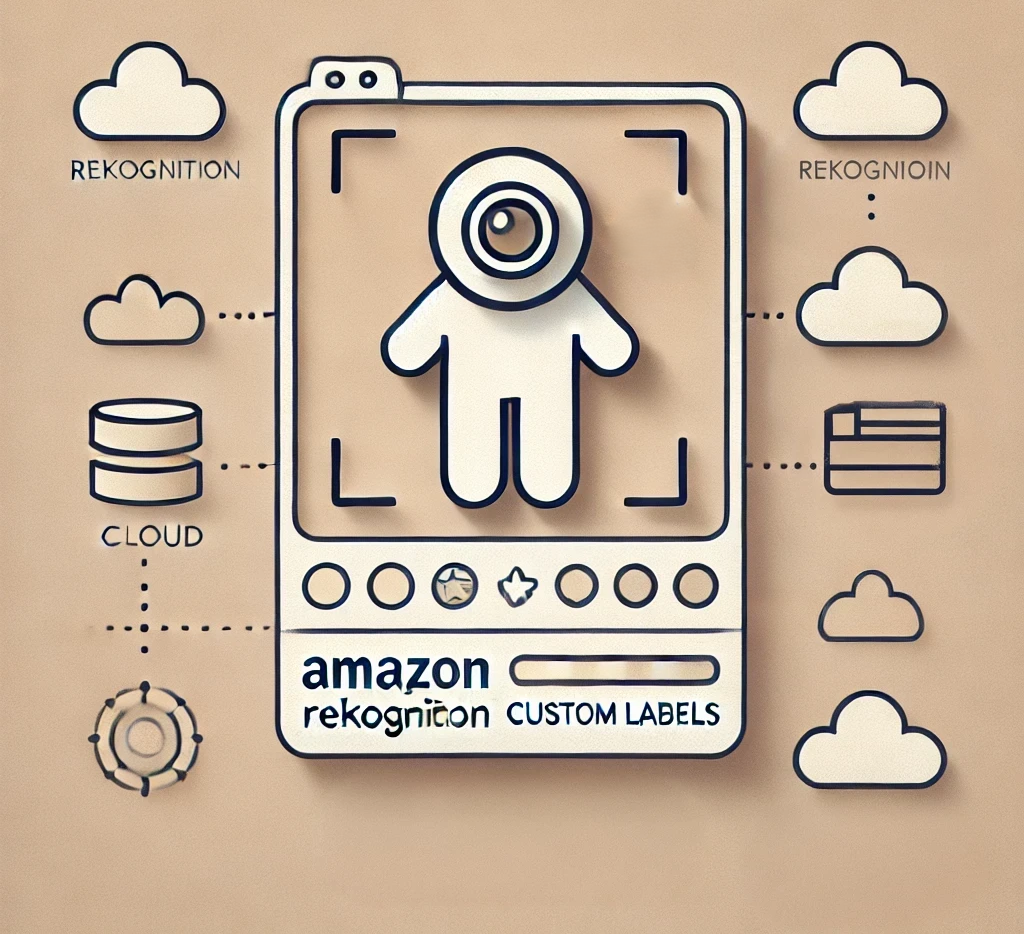Vasileios Fasoulas is a Serverless Technical Director at Digitas UK, where he leads a technology team responsible for developing and operating the Formula 1 Global Digital Platform. In a recent conversation on the Talking Serverless podcast, Vasileios speaks with Ryan Jones, founder & CEO/CTO of Serverless Guru, about his experience with the cultural and business sides of serverless technology.
Ryan Jones: How are you doing today, Vas?
Vas Fasoulas: I’m very well, thank you, Ryan! I’ll start with a little bit of background on myself. Formula 1 is what I’m working on now, but I have a long career in the digital media space — working for probably two or three of the largest ones in the space. For the last 10 to 15 years I’ve had the pleasure of working with a number of luxury brands like Aston Martin and Football/show brands like Monster City and Formula 1. So my background is in the digital media space all the way around web sites, communications, digital products, and e-commerce. I started early in the days of Lam stocks and all that and have moved all the way now to pretty much everything as a serverless and serverless. And it’s been a very exciting journey so far.
Culture
Q: I mean, it’s crazy the number of brands that you’ve worked for and all these major companies. Have you built up a pattern around all these companies of things that they do similarly, and things they do differently?
Vas Fasoulas: Absolutely. And that applies both for agencies, but also for clients. I would say the number one part, is it always comes down to “Peopleware”. Software is not so much the problem — it always comes down to people’s working practices, ways of working and so on. And these do not fundamentally change whether you are doing things on premise, data centers, or on the cloud (serverless), or whatever comes next.
Q: And so when you say people, not software, when you’re talking about communicating with people and creating these new initiatives, how have you addressed that when you’ve looked around these different companies?
Vas Fasoulas: Well, first of all, acknowledging that it’s an issue and a challenge is the first step. Secondly, it comes as a combination of education and leadership. So show people essentially how they can do things better, lead the way, and start with quick wins. And then move them kind of up the chain. I’ll use serverless as an example: A few years back, it didn’t exist or it was considered novel and very exotic. You definitely wouldn’t see this in digital space, or a bank, but now it’s becoming more and more pervasive. I came across an interesting article the other day, about companies that are doing really well in their adoption of serverless. And one of them is — you might be surprised to hear… Coca-Cola! They are doing it SO well that they actually changed some of the governance process to look for certain types of projects to almost go by default on serverless. So back in the day, I would need, for example, to give a justification on why I should not be doing web services and moving to serverless. Now it’s the other way around, they go serverless by default, and I need to give a justification why this cannot be the case; I think this shows a fundamental shift.
Q: Computer games, got into programming, got your first job. A technical architect, you said, was the thing that you wanted to move into. Then once you hit it, how did that transition towards, being a technical director?
Vas Fasoulas: Well, one of the realizations I had early in the very few years, is that while technology feels like it is all about technology — people are a fundamental part of it. And I think this is where the difference is between the engineering part, which obviously still interests me greatly, and the management/people part of team building. So I think that’s really the biggest transition between an architect or a “subject matter experts” and someone who is a little bit more rounded and able to see the bigger picture. The bigger picture can involve a lot of people as opposed to just how many transactions per second, and how many services we need and so on.
“So back in the day, I would need, for example, to give a justification on why I should not be doing web services and moving to serverless. Now it’s the other way around, they go serverless by default, and I need to give a justification why this cannot be the case; I think this shows a fundamental shift.”
Advice for those Beginning Serverless
Q: If a company is starting out and they’re thinking about using serverless, do you have any advice for them?
Vas Fasoulas: I will sound a little bit Nike, but “Just do it” and I do mean that. But, it kind of depends, obviously, on what product you are building. I would still question: do you have any supporting systems around that? You know, ordering system, inventory, email notifications, and whatever else it might be that could still benefit from serverless. So you might still be able to cover a factor of your needs with only 50%-60% serverless — and then it’s still worthwhile doing so.
Q: When it comes to introducing the concept of serverless to teams, have you had to transition a lot of people to working with A.W.S. and working with serverless? And how did you go about that process?
Vas Fasoulas: No, not that much. And I think we should. It’s becoming easier and easier because developers that have, let’s say, less than five years of experience, it’s more likely that they have started working or they have spent more time working on servers and containers and micro serverless rather than the traditional three-tier architecture. So ironically, the fresher people are out of university or into the employment arena, the more I’ve found that they’re more self-educated, they are more self-driven and keen to pick up new things. Basically, they have less things to unlearn to get used to the new way.
Q: So, take a step back if you’re thinking about serverless and you’re coming from a traditional background — approach it with a fresh set of eyes. Try not to apply a lot of preconceptions to what you think it will do and then learn to build it the way that it was designed to be built?
Vas Fasoulas: Exactly! Don’t think in the old ways and translate, it’s a little bit like speaking a foreign language. If you think in your own language and then translate, you’ll never really be able to do it right. You need to learn to think and express yourself in the foreign language itself.

Business/Cost Savings of Serverless
Q: When you think about evaluating the cost of serverless, are you looking at the raw costs? Are you looking at being able to finish the timelines faster? Or do you have a model for taking into consideration like how many physical people need to be utilized to make a solution happen?
Vas Fasoulas: I like how you raise the question in order to compare like for like we are focusing primarily on the cost of the running cost and the recurring cost, not so much the savings on engineering. It’s very hard upfront to say, well, it would cost, you know, ten days doing it in the traditional way and only five days of serverless. But what you can show some improvements or efficiencies is when we give partial costs for DevOps efforts. So you’re saying, well, the development is roughly the same and I’m saying roughly in loose terms. But for example, you can cut down your DevOps costs, the upfront cost and ongoing by 30–40 percent — whatever the number is. Plus you have a raw savings on the operating costs. So you’re hosting costs instead of being ten. Now it’s three.
Q: Have you seen any areas of serverless where there are hidden costs that you’ve then had to rethink?
Vas Fasoulas: Maybe we have been lucky or been really good at all our modeling. I guess one of the things — it’s not so much the cost and such, but how do you prevent things? So if you are having traditional DoS attacks, which before it would take you out of order of operation now, it could literally kill your bank account. We haven’t come across this because we’re always thinking about how can we prevent this, and we’ll have applied some security technologies to allow us to either protect ourselves from that or having the rights monitoring in place, to be able to adjust and, you know, if needed, turn a financial attack, so to speak, into an out of operation attack.
“Don’t think in the old ways and translate, it’s a little bit like speaking a foreign language. If you think in your own language and then translate, you’ll never really be able to do it right. You need to learn to think and express yourself in the foreign language itself.”
Q: As we’re coming to a close, do you have anything you want to promote or shout out?
Vas Fasoulas: I’m very pleased to share with you that we actually launched a new site for the new season for Formula 2 and Formula 3. And for the first time as an experiment, they’re based on serverless. We use Nuxt.js — so server-side rendering hooked directly on A.W.S. cloud forms, using lambdas. So basically we run the whole system without actually having a single server in place.
Q: Amazing! And this Formula 2 and Formula 3 sites, are these — you said they’re built with serverless, are these kind of your proof of concept websites? Are you ever thinking about looking back at Formula One and evaluating if you might transition it to serverless at one point?
Vas Fasoulas: Well, as I mentioned, early in our chat, I think for that type of scale and unique characteristics we are probably not there yet, but we think that technology is improving. The sports brands and looking into this as well and I think one day, definitely. I don’t think it will be in the long future — it’s getting closer and closer.
To hear the full interview, please visit talkingserverless.io, I-Tunes, Spotify, or Google Podcasts






%20(1).svg)

.svg)








